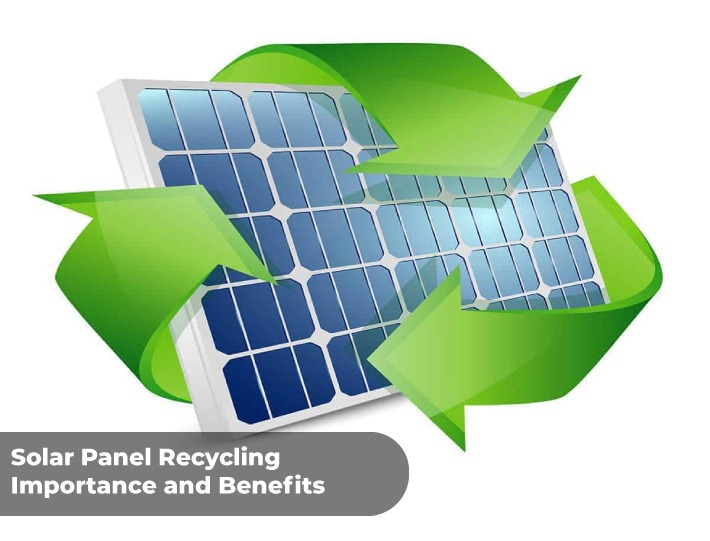Solar Panel Recycling: Importance and Benefits
In Australia, there are currently more than 45 million solar panels in place. When these solar panels reach the end of their useful lives, there will be 900,000 tonnes of waste that require a place for the Solar Panel Recycling Process. These figures will continue to rise as more systems are deployed each year.
You can support Australia's local economy and the environment by choosing to recycle solar panels when they reach the end of their useful lives. Let's first examine the financial advantages of safe solar panel disposal before examining how this occurs.
Advantages of Recycling Solar Panel Waste
The Components of Solar Panels Have Monetary Worth
These components would be lost if solar panels were landfilled. Copper, silver, and silicon are just a few of the highly precious minerals found in solar panels that can be recovered. These components can be utilized again when creating new goods. Plastic, glass, and aluminum are just a few examples of other materials that can be recycled.
Recycling Makes Future Raw Material Supplies More Secure
Local producers may now easily access commodities that have previously undergone a certain amount of processing. As a result, less processing is required and fewer suppliers are needed to extract raw materials.
Recycling Helps Regional Businesses and Communities
Many companies successfully contribute to the value chain by repurposing raw materials for manufacturing. Recycling your solar panels enables these companies to acquire these materials, thereby supporting their operations.
Recycling Helps to Create New Jobs
To manage each step of the solar panel recycling process, new jobs will be generated, ranging from plant and machinery operators to truck drivers, logistics providers, and waste management authorities.
Encouraging Recycling Might Help You Build Goodwill
The support of solar panel recycling is a chance for solar system owners, installers, major energy utilities, businesses, and governmental agencies to enhance their brands and foster goodwill. The growth of solar energy and other renewable sources demonstrates Australia's steadfast commitment to environmental protection.
Environmental Benefits
Heavy Metals and Potentially Dangerous Chemicals are Present in Solar Panels
Different producers use these materials in different ways. Solar panels frequently contain lead, cadmium telluride, copper indium selenide, tin, and polymers. These materials can produce toxic leachates in soil and groundwater if waste is handled improperly, endangering nearby communities, flora, and species.
Recycling Solar Panel Waste Prolongs the Usefulness of Landfills Already in Operation
Landfills have a lifespan and anticipated depletion dates, just like solar panels. Recycling practices cut down on the amount of rubbish dumped in landfills, which lengthens their lifespan. This indicates that our current landfill operations will continue for longer until new, typically farther-off locations, need to be located.
Recycling Solar Panels Improve the Supply Security of Raw Resources In the Future
The increase in efficiency has both economic and environmental benefits. Mineral resources live longer when we rely less on mining fresh commodities like silver and copper. This enhances access for future generations as well as raw material security.
Conclusion
Consider the advantages of responsible solar panel disposal for the solar panel recycling process the next time you have to remove or dispose of solar panels and other system trash.

